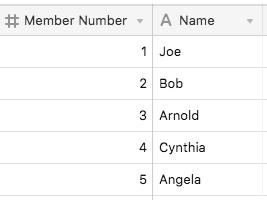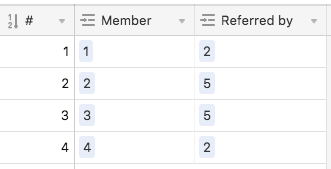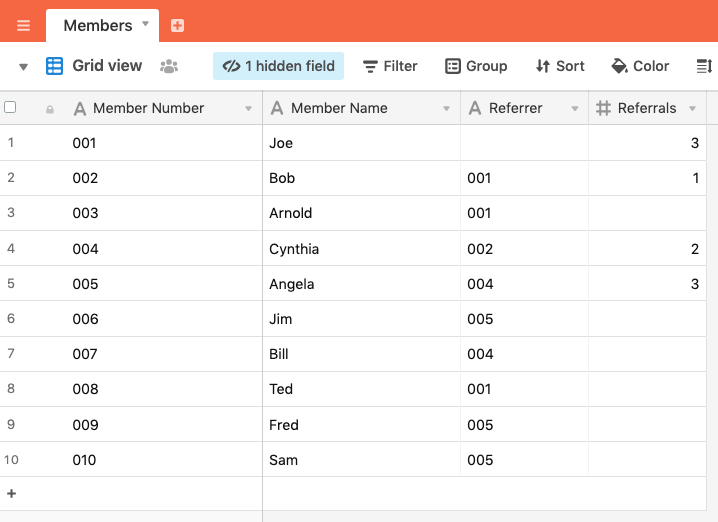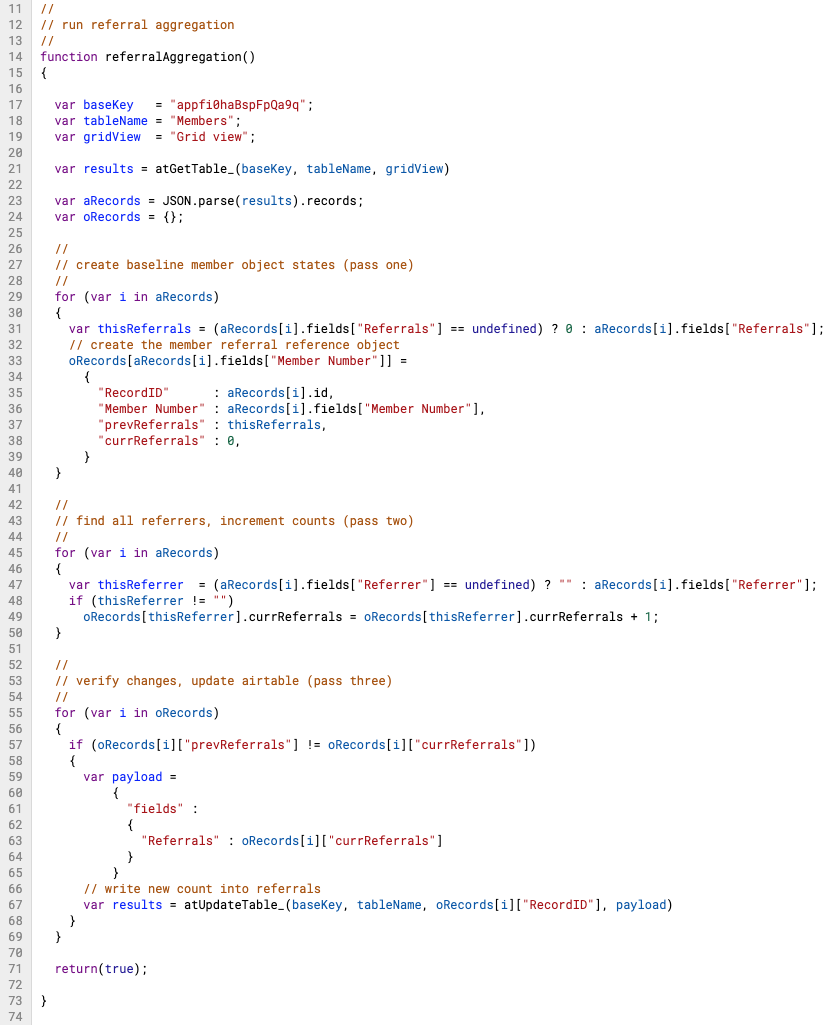Hi all,
I have three columns: Member Number, Referrer, and Referrals. I am trying to count how many records contain the Member Number in Referrer, for the Referrals field. In other words, if I have 100 member records, and 5 records have “24” in the Referrer field, I would want the Referrals field in Member Number 24’s record to say 5 (the amount of times they reffered members).
Does this make sense? Any ideas on how to do this?
Thanks so much!
Adam









